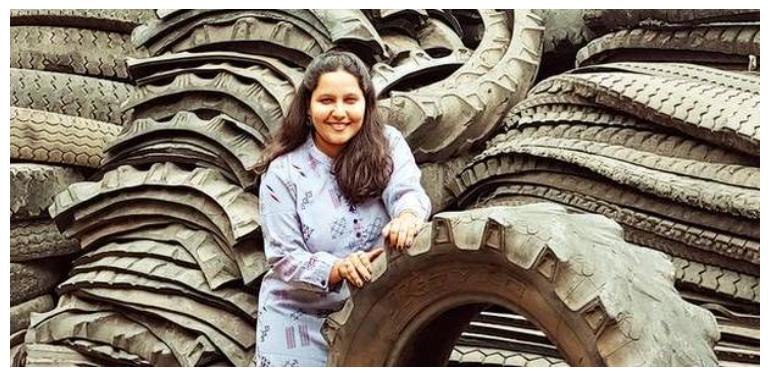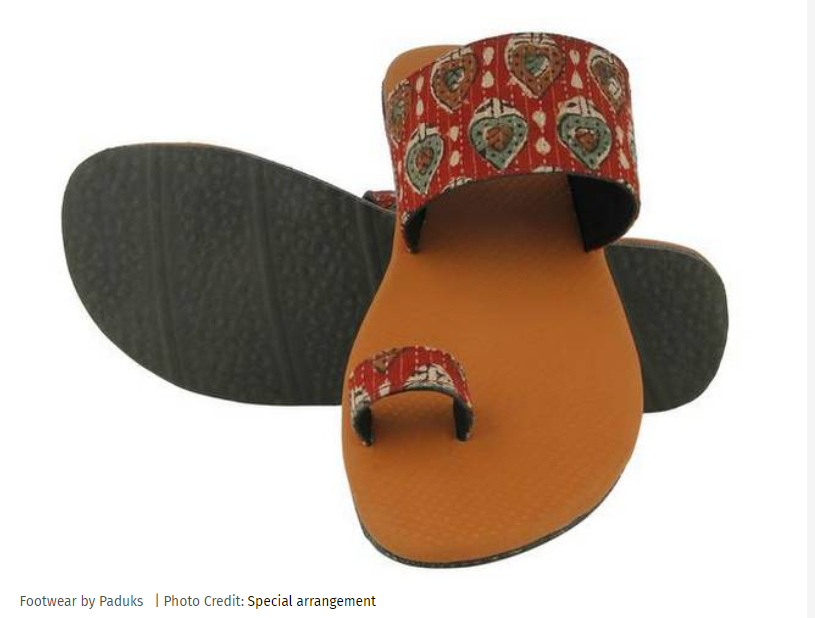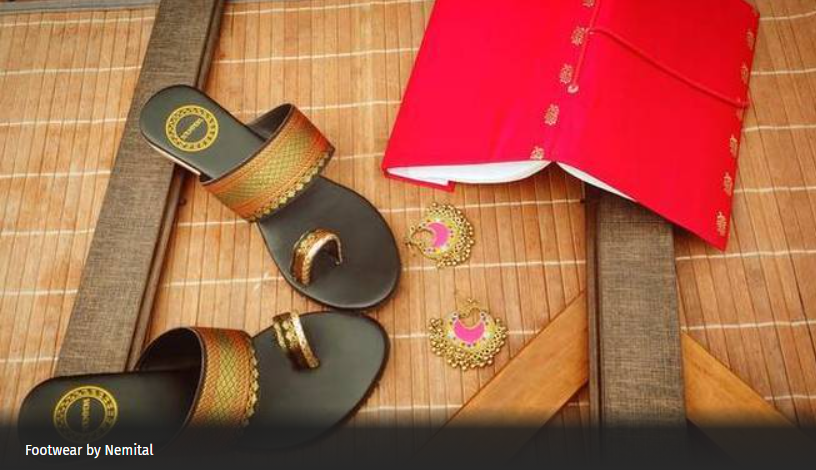Though conservation is the key purpose behind these shoes, style does not take a backseat either
What happens to vehicle tyres once they have outlived their purpose? Often, the end-of-life tyres are put through thermochemical treatment under high temperature, to produce industrial oil and other matter, in a process called pyrolysis. The procedure emits polluting gases, according to the Australian Tyre Recyclers Association (ATRA), and has been banned in some developed countries. Tyres that escape pyrolysis sit in large rubber graveyards, where they do not disintegrate, but leach harmful chemicals into the landfills or are a fire hazard.
Young Indian entrepreneurs are finding innovative, non-toxic ways of returning rubber to the road — by adorning your feet with them. Mumbai-based Funky Kalakar, for instance, has impressive credentials: 1,400 kilogram of rubber tyres saved and sewn into footwear since 2017. On a smaller — but still impressive — scale, Pune-based Nemital upcycled more than 400 kilograms of tyres since it was founded in 2018. Tyres, however, are just the beginning. Both these firms are now taking their upcycling ambitions to the next level.

Says Pooja Apte-Badamikar, Founder of Nemital, “We are planning to use upcycled textile and plastic sheets in footwear, very soon, as we transition from waste to wealth.”
Amit Jain’s Funky Kalakar has already taken its ethos of circular fashion forward with the launch of Go Zero- a recycling/upcycling initiative wherein customers can ship or drop off their previous purchases (handbags and footwear), and are incentivised with a discount on future shopping. Once the items are received, the parts that can be salvaged are upcycled into small accessories like key chains and card holders, while the remaining material is recycled. The PETA-certified brand creates handbags as well as men’s and women’s footwear, and has taken its green footprint overseas, with customers across USA, UK and Australia.
Amit is also the Head of Strategy at Paaduks, which takes pride in its upcycled collections of men’s and women’s footwear, handcrafted painstakingly from old tyres, by a team of six craftsmen. Amit explains, “As we scale up, we want to bring new products to the market with sustainable material like upcycled rubber, cork and handloom, but more importantly, we want to give our footwear a second life. This Diwali, Paaduks will launch a recycle programme similar to Funky Kalakar, and we will have drop-off points across Mumbai, Bengaluru, Goa, Ahmedabad and Hyderabad. Everyone wants new footwear for festivals and this way, they can have their new soles and save the planet too.”

How it’s done
The tyres, explains Pooja, are shorne off their rims and other additions and sourced in strips from ragpickers. The rubber is cleaned and cut into the desired thickness and shape according to footwear designs. Once the soles are cushioned, the straps are fashioned out of fabric.
Nemital has been a labour of love, for over two years. The confluence of concept and conscious design helped Pooja win the award for Upcoming Woman Entrepreneur at Startup Yatra, organised by Startup India in association with the Maharashtra State Innovation Society in 2018. Now, Nemital accepts bulk orders through its website and e-commerce platforms, as well as its YOUniQ initiative, where buyers can customise their footwear in terms of style and fabric.
The name is a fusion of Nemi, meaning ‘chakra‘ and Tal which stands for ‘sole’ in Sanskrit, according to the brand’s website. Pooja reminisces her journey towards sustainability, “Armed with a post-graduate degree in Renewable Energy from TERI School Of Advanced Studies, New Delhi, I have perused multiple research papers on tyre upcycling, and have conducted experiments on scrap tyres in the laboratory, with my mentors. Our upcycling process does not use any chemicals or resort to burning or heating tyres, so it’s a win-win proposition.”
Article Credit: thehindu
